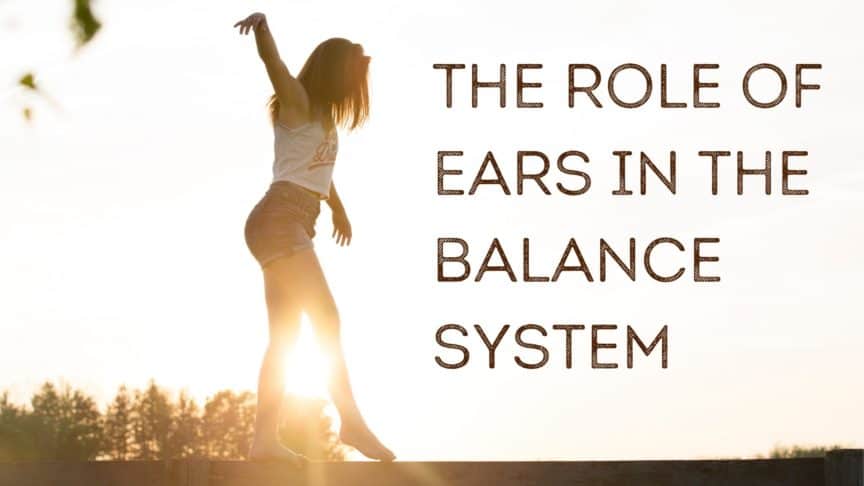For most of us, it is not till we suffer from dizziness or vertigo that we may wonder how we stay balanced. When everything is going well, it is actually the brain, in cooperation with other parts of our body including eyes, joints, muscles, skin and the ears, which keeps us standing upright. The ears play a particularly important part in maintaining your body’s equilibrium. Let’s explore further on how the ears work with your brain to maintain balance.
How we maintain equilibrium
Balance in the body is maintained through an extensive network of sensory organs in communication with the brain. The sensory organs, which control balance, are broken down into three categories:
Skin, Joints and Muscles
Information from the skin, muscles, and joints involves sensory receptors that are sensitive to stretch or pressure. For instance, skin and muscle send information to the brain about location based on the stretch of the skin or muscles in the feet and legs when standing on a gravel road. These stretch and pressure cues inform our brain of our body’s location in space.
Eyes and Balance
The brain also relies on how and what we see to understand our location and balance in the world. Sensory receptors in the retina are called rods and cones. Rods help see well in low light while cones help analyze color. Light strikes against the cones and rods creating visual cues to where an individual is situated in the world. For instance, it allows the brain to identify buildings and storefronts, which are vertically aligned and helps you to understand as the cars pass your peripheral vision.
The Ears and The Vestibular System
The ears help us hear the world around us, helping us to hear and respond to conversation as well as help us identify the proximity and direction a sound is coming from. In addition to these important and amazing jobs, our ears also help us stay balanced, by identifying the location and position of our head, based on fluid in our inner ear.
The vestibular system is a network of fluid chambers and tiny hair-like cells located alongside the cochlea in the inner ear. These tiny hairs not only transmit sound waves to the brain but also help us interpret our balance. When we change the position of the head fluid in the vestibular system moves, informing the brain of our heads position. The parts of the inner ear, called the utricle and saccule track the head’s angle and gravitational position while other areas track the head’s rotation..
Hearing Loss and Balance
The tiny hairs of the inner ear within the vestibular system are incredibly fragile. Exposure to noise, an impact to the head, certain medications or even old age can damage or destroy the tiny hairs leaving you with irreversible hearing loss. In addition to hearing loss these hairs also inform the brain of the head’s position making damage to the inner ear a balance issue as well. In many instances, patients who deal with loss or damage to the inner ear can struggle with unexpected vertigo or ongoing issues with dizziness.
Living with chronic hearing loss can make it much more difficult to navigate the world, leaving you less sure on your feet and more prone to falls and accidents. This can affect an individual’s likeliness to navigate new situations, affecting self-esteem. Over time people with untreated hearing loss are all too likely to struggle with depression anxiety and self-isolation due to untreated hearing loss.
Treating Hearing Loss to Assist in Balance
The sounds we hear not only help us communicate but help us to understand the space we navigate. For instance, healthy hearing allows us to hear the location and assess the speed of an oncoming motorist or bicyclist. When we can hear and assess warnings and clues in our environment we are more able to respond in a timely manner to keep us safe.
While hearing loss cannot be reversed, hearing aids can amplify lost sounds, making them clear again. Hearing aids can improve equilibrium by allowing you to hear many more sounds in the environment clearly and quickly. If you have been having trouble staying balanced recently or you suspect you are having an issue hearing the world around you, it’s a good idea to have your hearing checked immediately. The sooner you deal with your hearing the more sure you can be of navigating the world around you.

